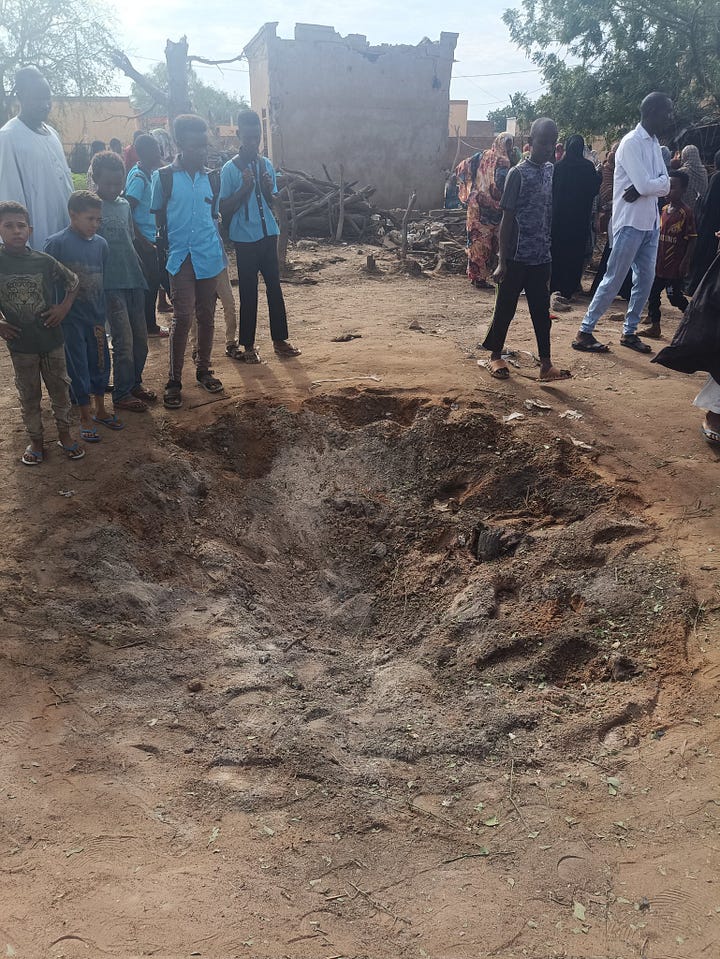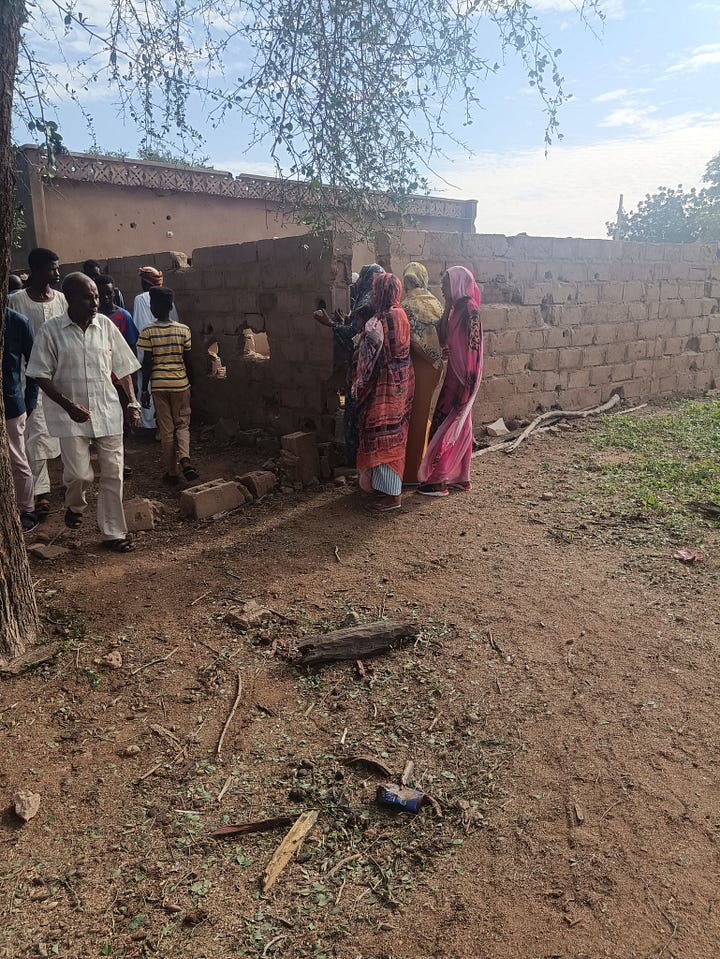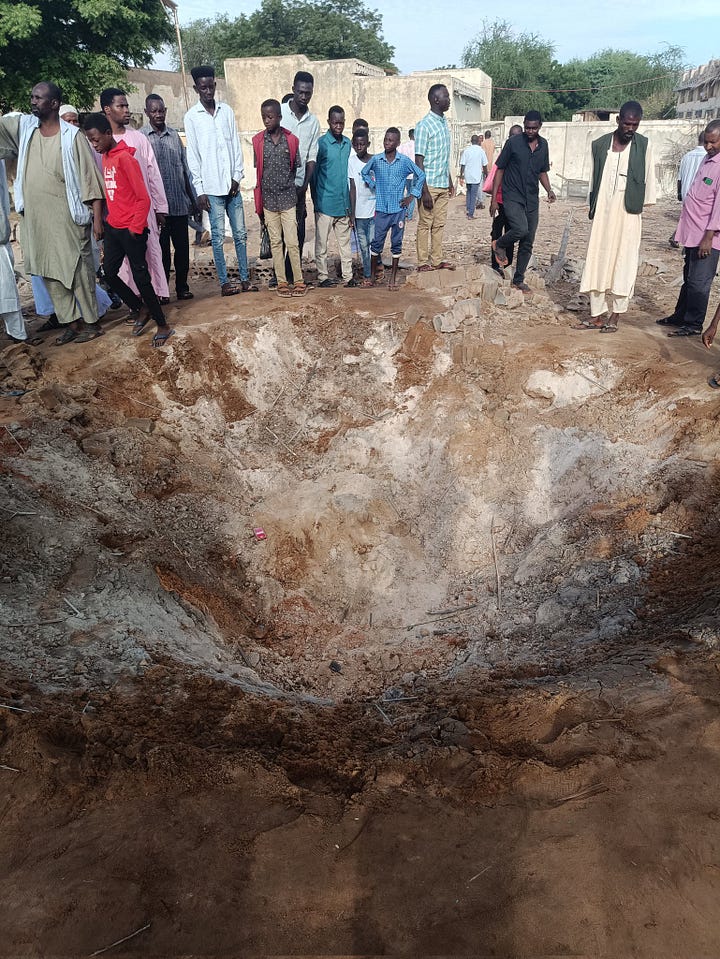UK: 100 famine deaths per day in Sudan
'Famine is entirely man-made'
One hundred people are dying of starvation every day in Sudan, according to the United Kingdom Mission to the United Nations, citing recent findings by a five-member panel of food security experts that studied data from the war-torn country.
“There is only one possible conclusion from the Famine Review Committee’s Data: There if famine in Sudan, and that famine is entirely man-made,” said Ambassador James Kariuki, UK Deputy Permanent Representative to the UN, speaking at a meeting of the UN Security Council on Tuesday.
“Today, 100 Sudanese civilians—men, women, and children—will die from starvation. Tomorrow, 100 more,” said the diplomat. “This appalling loss of life will continue until the warring parties put the people of Sudan before power,” he added, calling on the warring parties to join ceasefire talks in Geneva.
This estimated daily toll is equivalent to about 3,000 famine deaths per month. The famine is expected to persist at least until October and could intensify and spread, forecasters have warned. Famine conditions began in June, if not earlier.
The UK ambassador’s statement follows a famine declaration by the famine watchdog organization IPC (an abbreviation for “Integrated Food Security Phase Classification”) for Zamzam Camp and other areas around El Fasher, the capital of North Darfur. The declaration lags the actual emergence of famine conditions by several months.
The declaration followed a review of mortality data previously gathered and circulated by Doctors Without Borders and other aid agencies. Doctors Without Borders warned in February 2024 that 13 children were dying every day in Zamzam Camp. Hunger has since become more widespread in the camp and in Darfur in general as conflict escalated and market conditions and humanitarian access deteriorated.
The UK ambassador blamed the warring parties for the famine, saying,
“The level of suffering in Sudan is unimaginable. It exists far beyond Zamzam Camp and it is a direct consequence of the actions of the warring parties. The Sudanese Armed Forces are obstructing aid delivery into Darfur including by shutting the Adré crossing, the most direct route to deliver assistance at scale. The Rapid Support Forces (RSF) ongoing assault on Darfur has forced thousands to flee and created the conditions for starvation to spread.”
Although El Fasher is the only area in Sudan where IPC made an official finding of famine, other parts of Sudan are experiencing food shortages too. According to the UN, more than 20 million people in Sudan need food assistance to prevent hunger, acute malnutrition, and mortality.
Worsening conflict, mass displacement, disruptions to agriculture, the destruction of bridges and other transportation infrastructure, the collapse of government institutions, a huge drop in the value of the currency, loss of exports, and other economic and conflict factors create a risk that the famine could intensify and persist beyond October. The massive food gap created by these conditions would be difficult to address even if the conflict stopped right now.
World Food Programme Assistant Executive Director Stephen Omollo, who briefed the Security Council, said that his agency is ready to help but cannot access large parts of Sudan, including areas where food is needed most urgently:
“Excellencies, humanitarian agencies will do everything we can to prevent famine from engulfing Sudan, but we can only operate where conditions allow and where we are granted access. Now more than ever we need the Security Council to focus on this crisis and to use their influence on the warring parties to halt this conflict.”
Omollo also called for “increased and flexible funding to support the rapid scale-up of the relief operation. Sudan is critically underfunded and this has to change if we are to save lives… halting the famine now requires political will and leadership.”
On the other hand, the Russian representative at the meeting downplayed the IPC report, saying it indicated a “theoretical likelihood of a catastrophe,” but did not definitely prove the existence of famine in Darfur. This position aligns with that of Sudan’s military government, which has blocked cross-border food deliveries to Darfur from Chad for fear that food supplies could fall into the hands of the rebel RSF.
In addition to food shortages, several parts of Sudan currently are suffering from floods due to seasonal rains. These have destroyed hundreds of houses in various areas, adding to the already large displacement burden in the country. Approximately one in five Sudanese have fled from their homes since April 2023. The UN Office for the Coordination of Humanitarian Affairs said in an update that 73,000 people were affected by floods, including 21,000 displaced. The worst affected areas included Port Sudan, Foro Baranga, Rehed Al Berdi, and Kassala.
WFP: Scaling up in ‘race against time’
RSF launch attack in White Nile
The UN International Organization for Migration reports fresh displacement caused by an RSF attack in White Nile on August 5. Approximately 510 households were displaced from the villages of Laota, Malih, Arkeez, and Al Lageid villages in Al Gitaina locality to other parts of that locality, as well as Rabak and Ad Duweim localities.
The mentioned villages are about 35 km north of Abu Hibeira on the Khartoum-Rabak road. RSF offensive activity along this axis is noteworthy though not unprecedented. In a previous article, we discussed White Nile’s potential vulnerability to attack. A takeover of the state by the RSF would send a wave of refugees into South Sudan, potentially destabilizing Sudan’s already fragile southern neighbor.
In another military development, RSF shelling of the livestock market in El Fasher yesterday killed at least ten people and injured dozens, according to local media.
Medical supplies stolen in Central Darfur
Doctors Without Borders (MSF) says that it has failed to recover a truck carrying medical supplies that was seized in Central Darfur a month ago, “despite repeated engagement since then with the Rapid Support Forces,” which control the area.
The truck had been en route from Zalingei to an MSF-supported hospital in Rokero, 175 km to the northeast in territory controlled by the Sudan Liberation led by Abdelwahid al-Nur, a neutral armed group. It was carrying therapeutic food for malnourished children, antibiotics, and other items.
“We are highly concerned and strongly condemn this unacceptable robbery jeopardizing our ability to respond to the growing needs of the local communities and displaced population in Jebel Marra, a mountainous area that is already difficult o reach, affected by nearly 16 months of war,” said Muriel Boursie, MSF head of emergency operations in Sudan.
Hospital stocks in Rokero are now nearly depleted. The facility serves both a local population of about 250,000 from surrounding localities plus thousands of people who recently arrived in the area from El Fasher, fleeing the fighting in that city.
Bombing of Ghubaysh, West Kordofan




Two barrel bombs fell on the town of Ghubaysh on Tuesday, August 6, landing near the home of a local leader, Sheikh Abdhullah Ahmed, who sustained a deep wound in his right forearm, in addition to three others injured from the family of another tribal leader, the late Shartai Ali Muhammed Ubaidallah, according to a local source.
Ahmed Salloum, a local citizen, said that the airstrike was the first of its kind since the RSF took over Ghubaysh in December 2023 without resistance, given that there was no military garrison there, only some city police. Ghubaysh is about 130 km southwest of Al-Nahud, a government-controlled town.
A girl who suffered from heart disease reportedly had a panic-induced attack as a result of the explosions and died. The airstrike destroyed seven homes.
Related coverage:
New member appointed to ruling military junta
Lt Gen Abdel Fattah Al Burhan has appointed Abdullah Yahia Ahmed Hussein as the newest member of the Transitional Sovereignty Council, replacing Al-Tahir Hajar, leader of the Gathering of Sudan Liberation Forces (GSLF), whom Al-Burhan fired last November for refusing to renounce his neutrality in the ongoing war with the RSF.
Abdullah Yahia was the deputy leader of Al-Tahir Hajar’s GSLF, an armed group with troops hailing mostly from North Darfur, until the two leaders split and both claimed leadership of the movement, with one faction staying neutral and the other aligning with the Joint Force and the army in El Fasher.
Abdullah Yahia Ahmed Hussein already has served as minister of roads and urban development since 2021. He was appointed by the civilian Prime minister Abdallah Hamdok in implementation of the Juba Agreement and retained in the same position by the military government of Al-Burhan after the coup of October 2021.
This appointment is transparently a reward for a Darfur politician who has supported the army, while punishing another who stayed neutral in the ongoing civil war. It follows a similar appointment last month to reward Salah al-Din Adam Tor, the leader of a splinter group from the still neutral SLM-Transitional Council led by Al-Hadi Idriss.
Defection of RSF commander in West Kordofan
The deputy commander of the Rapid Support Forces in Ghubaysh locality, Colonel Mohamed Ajab Salem, known as “Abu Sitta,” has announced his withdrawal from the Rapid Support Forces’ West Kordofan Sector and joined the army at the Nahud military garrison, headquarters of the 18th Infantry Brigade, affiliated with the 5th Infantry Division (El Obeid), claiming to bring with him a force of 311 individuals and 11 combat vehicles equipped with heavy and light combat weapons.
Colonel Abu Sitta said that his joining the army came in response to the call of the native administration issued by Emir Abdel Qader Moneim Mansour, emir of the general tribes of Dar Hamar, who directed an appeal to the sons of the Hamar tribe among the Rapid Support Forces to withdraw from the RSF and return to the army.
Support our journalism
Sudan War Monitor is a collaborative of journalists and open source researchers tracking the events of Sudan’s war and the search for solutions.
We’re building a platform to battle disinformation and warmongering and amplify the voices of victims, humanitarians and peacemakers. Subscriptions and donations from readers like you enable us to do this critical work. You can sign up for a monthly or annual recurring subscription or, if you prefer, make a one-time donation.
For an optimal reading experience, we recommend downloading the Substack app. Substack is the technology provider that powers this publication.






